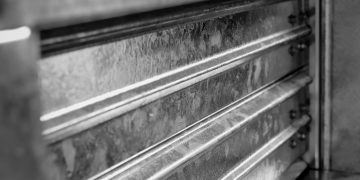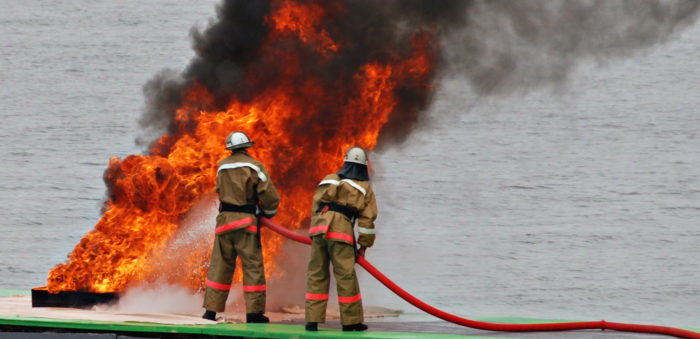The German Federal Bureau of Maritime Casualty investigation released its report about two fires on containerships. Namely, the MSC Katrina was in the Elbe estuary when the fire was detected on November 20, 2015. The second ship, Ludwigshafen Express was in the Red Sea, on February 21, 2016, when fire was noticed during an inspection.
The incidents
MSC Katrina
The MSC Katrina was located in the Elbe estuary when its smoke detection system discovered fire. As a result, the Central Command for Maritime Emergencies had the ability to deploy specially trained firefighters.
[smlsubform prepend=”GET THE SAFETY4SEA IN YOUR INBOX!” showname=false emailtxt=”” emailholder=”Enter your email address” showsubmit=true submittxt=”Submit” jsthanks=false thankyou=”Thank you for subscribing to our mailing list”]
The fire was extinguished without causing damages to the ship, while there were only minor damages to the cargo. The container that the fire affected container charcoal and was located in a free-standing stack in the cargo hold, something that made it easier to put out the fire.
Ludwigshafen Express
The second ship, Ludwigshafen Express, was sailing in the Red sea fire broke out, something that was noticed during an inspection. Thus, the crewmember had to deal with the fire completely on their own.
The fire was reported on a container which was located directly on a hatch cover. Its location made it easier for the crew to tackle the fire quickly and effectively, by using the equipment that was available onboard the ship.
The ship was carrying 8 container carrying cargo, which the ship’s command did not know as the charcoal had passed the necessary test and was declared as a dangerous cargo.
The fire did not cause any damage to neither the ship, not the container.
Because the two incidents were similar to each other, the investigation on the two events were summarized in one report.
Probable cause
In his report, Dr. Krause said that it was not possible to determine if the properties of the cargo carried on the ship were hazardous. However, the cargo documents had no information f the cargo passed the tests for self-heating substances. These documents were accepted by the two ships, despite the fact they did not have that information.
Recommendations
BSU recommends the following:
- Ship-owners must issue guidelines to shippers for the structure of the documents required.
- Federal Ministry of Transport and Digital Infrastructure to call IMO to amend IMDG Code.
- Federal Ministry of Transport and Digital Infrastructure has to consider stowage requirements.
- Mediterranean Shipping Company has to state that self-heating substances should always be easily accessible.
- Orient Overseas Container Line has to forward information on cargo to partners, even if it does not constitute dangerous goods.
For more information click in the PDF below


































































